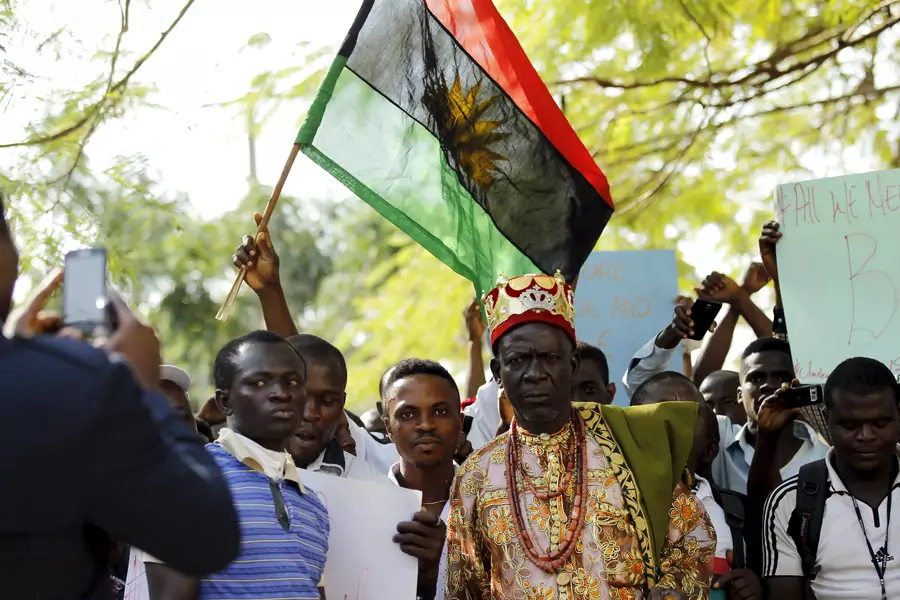Biafra Heats up as Trials Resume, Elections Loom, and Kanu Is Still Missing

The Indigenous Peoples of Biafra (IPOB) is one of several groups seeking to revive republic of Biafra, a predominately Igbo state that sought to secede from Nigeria in 1967. Secession led to a civil war that left around one million dead, most civilians and mostly from disease and starvation, before the territory was re-incorporated into Nigeria in 1970. Nigeria’s military government, led by General Yakubu Gowon, pursued a post-war policy of “no victors, no vanquished,” and former supporters of Biafra quickly resumed prominent positions in national life. Nevertheless, pro-Biafra sentiment has never gone away, especially among the Igbo, and it is supported by some elements of the Nigerian diaspora. Many Igbos firmly believe that they are marginalized, but it is unclear just how much support Biafra has among the Igbo. In times of political uncertainly like now with the 2019 national elections on the horizon, discussions of Biafra tend to reenter the political and media mainstream. The civil war was a defining episode in Nigeria’s post-independence history, and for a generation of Nigeria’s leaders, including President Muhammadu Buhari, national unity is sacrosanct.
The titular leader of IPOB is Nnandi Kanu and he holds both a British and a Nigerian passport. He argues that Biafra should be recast in terms of self-determination, that it is a legitimate political movement that reflects the aspirations of ‘Biafrans.’ The Nigerian government, on the other hand, sees his secessionist efforts as treasonous. The government arrested Kanu in 2017, jailed him, and then released him on bail pending his trial. He has since disappeared and the security services regularly say they do not know where he is. Biafra supporters have claimed that the security services murdered him, while others suggest that he fled to the United Kingdom. The British authorities, however, say they do not know where he is, but note that as a British subject, Kanu would be free to enter the United Kingdom at any time.
More on:
Meanwhile, Kanu’s collaborators who were arrested at the same time he was but were not granted bail face a new three-count charge of treasonable felony. These charges effectively separate their trial from Kanu’s, when and if it takes place. The government has announced that their trial will start soon. In response, the IPOB has announced that if the defendants are not granted bail or released unconditionally, it will begin a campaign of civil disobedience. Should it take place, there is a real danger that the campaign could morph into sabotage of Nigeria’s oil production facilities. Oil provides more than 70 percent of the government’s revenue, and more than 90 percent of its foreign exchange. Hence, unrest in the oil patch poses a serious challenge to the Nigerian government. Charges of treason in the context of secessionist movements can be a blunt instrument, as the British government learned in Ireland in 1916. Conviction and execution can convert a marginal movement into a popular insurrection. Hence, it is to be hoped that the Nigerian government will proceed with caution and sensitivity.
More on:
 Online Store
Online Store